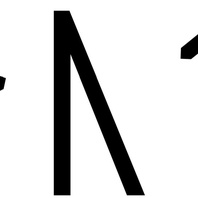
Viking Names
Gaut
Gautr and the related Gauti are short forms of names in Gaut- or -gautr, or an original byname meaning ‘man from Gautland’. This region comprises the provinces now known as Östergötland and Västergötland in southern Sweden, and is the homeland of the Geats in the Old English poem Beowulf. Gautr is recorded in several Swedish and Norwegian runic inscriptions and is also the name of a rune-carver in the Isle of Man. The name appears in two inscriptions there; on the runic cross from Kirk Michael it is (boastfully but erroneously) claimed that ‘Gautr made this and all in Man’.
Read More

Viking Names
Bui
An original byname Búi, from búa ‘to dwell’, was found in Norway and Iceland as a personal name and byname, but is rare there. In the form Bōi, later Bo, it is very common in Denmark and Sweden, where it appears in several runic inscriptions as bui and is found in the Latin forms Boecius and Boetius. It is possibly found in three Normandy place-names and it is potentially the first element in Boothorpe, Leicestershire.
Read More
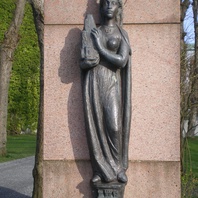
Viking Names
Sunnifa
Sunnifa is a Scandinavianised form of Old English Sunngifu, which was the name of an Irish Christian queen who fled to Norway in the tenth century, according to her legend. She was later venerated as a saint and is the patron saint of Bergen and Western Norway. The name appears in Norway from the eleventh century onwards, but it is rare in Iceland and Denmark. Sunnifa is well-attested in medieval English documents notably in Lincolnshire and Yorkshire, as well as some field-names in West Yorkshire.
Read More

Viking Names
Stenson
Stenson, in the Appletree Hundred of Derbyshire, is an Anglo-Scandinavian compound from the Old Norse male personal name Steinn and Old English tun ‘an enclosure; a farmstead; a village; an estate’. It is a joint parish with Twyford.
Read More
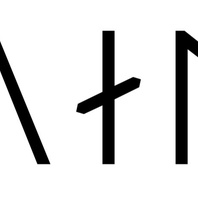
Viking Names
Hroald
Hróaldr was a common name throughout Viking Age Scandinavia, appearing in a few Swedish and Danish runic inscriptions. The name is used in modern Scandinavian today as Roald which was given the famous British children’s author Roald Dahl by his parents who were Norwegian immigrants to Wales. The personal name also appears as the first element in the place-name Rolleston, Nottinghamshire.
Read More
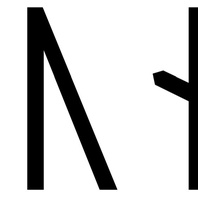
Viking Names
Gunni
Gunni is a short form of Old Norse personal names in Gunn– from Old Norse gunnr, guðr ‘battle’. The personal name is very common throughout areas of the Viking diaspora and occurs in several place-names including three in Normandy. Gunni is also found in Danish and Swedish runic inscriptions. Gunni is the first element in three Lincolnshire place-names: Gunness, Gunby, and Gunthorpe.
Read More
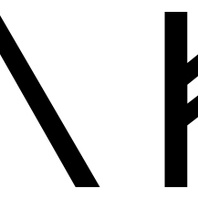
Viking Names
Tofi
The name Tófi is very common in the Viking Age, though mostly in Sweden and Denmark. It forms the first element of the hybrid place-name Toton, Nottinghamshire.
Read More
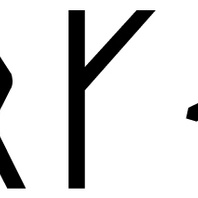
Viking Names
Thorgeir
The male name Þorgeirr is extremely common in the Viking world (including Ireland and Normandy) and an anglicised version appears as the first element of the village- and wapentake-name Thurgarton in Nottinghamshire.
Read More

Viking Names
Sigulf
Sigulfr is a Scandinavian male personal name from Old Norse Sig- ‘victory’ and Old Norse -ulfr ‘wolf’. The name is possibly found in a Norwegian place-name and appears once in Jämtland (modern day Sweden) in 1347. The name is recorded in Sweden as runic sikulf and in the forms Sighulf, Sigell and possibly in the much contracted form Siel in Denmark. Sigulfr is also the first element in the place-name Sileby, Leicestershire.
Read More

Viking Names
Hasland
Hasland, in the Scarsdale Hundred of Derbyshire, is an Anglo-Scandinavian compound from Old English hæsel ‘a hazel-tree’ and Old Norse lundr ‘a small wood’. Earlier forms of the place-name such as Heselunt and Heslond show influence from Old Norse hesli ‘hazel-wood’.
Read More
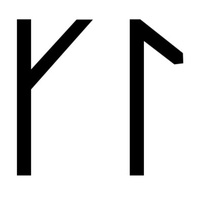
Viking Names
Broklaus
The postulated Old Norse male personal name Bróklauss is likely an Anglo-Scandinavian formation. It is originally a byname from the Old Norse elements Brók- ‘breeches’ and -lauss ‘less’. It is the first element in the place-name Brocklesby, Yarborough Wapentake, Lincolnshire, and in a field-name in Broughton, in Manley Wapentake, also in Lincolnshire.
